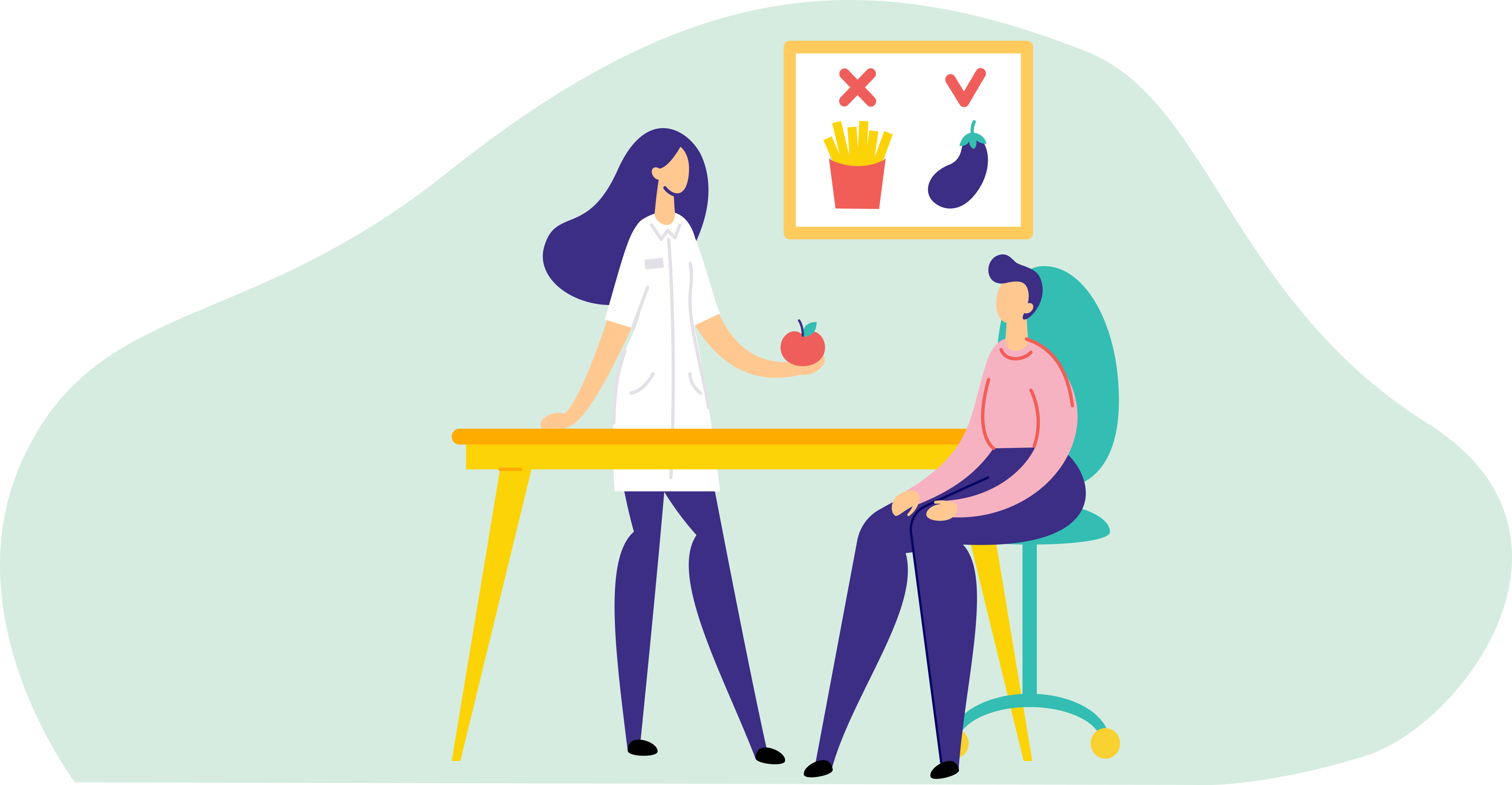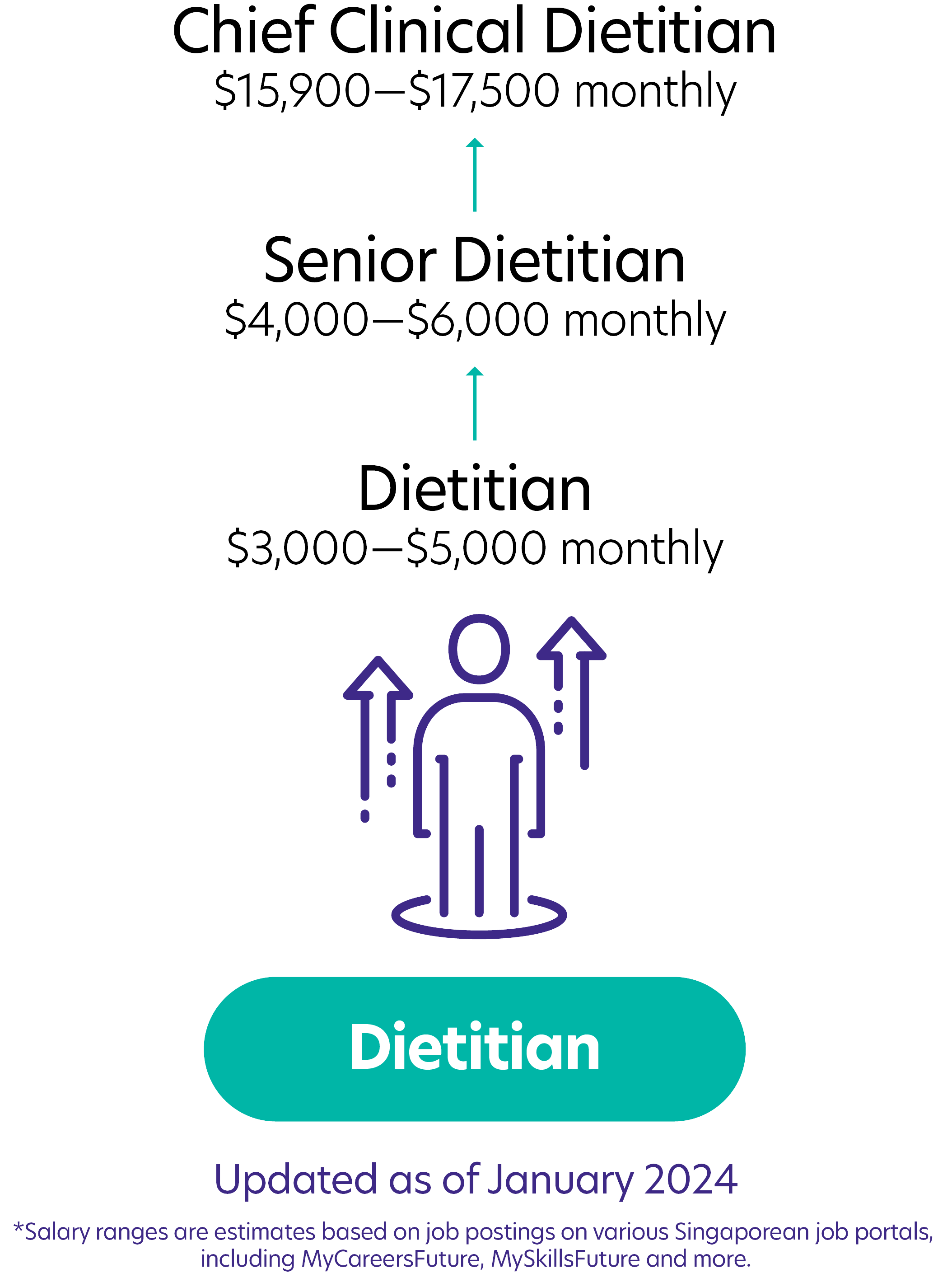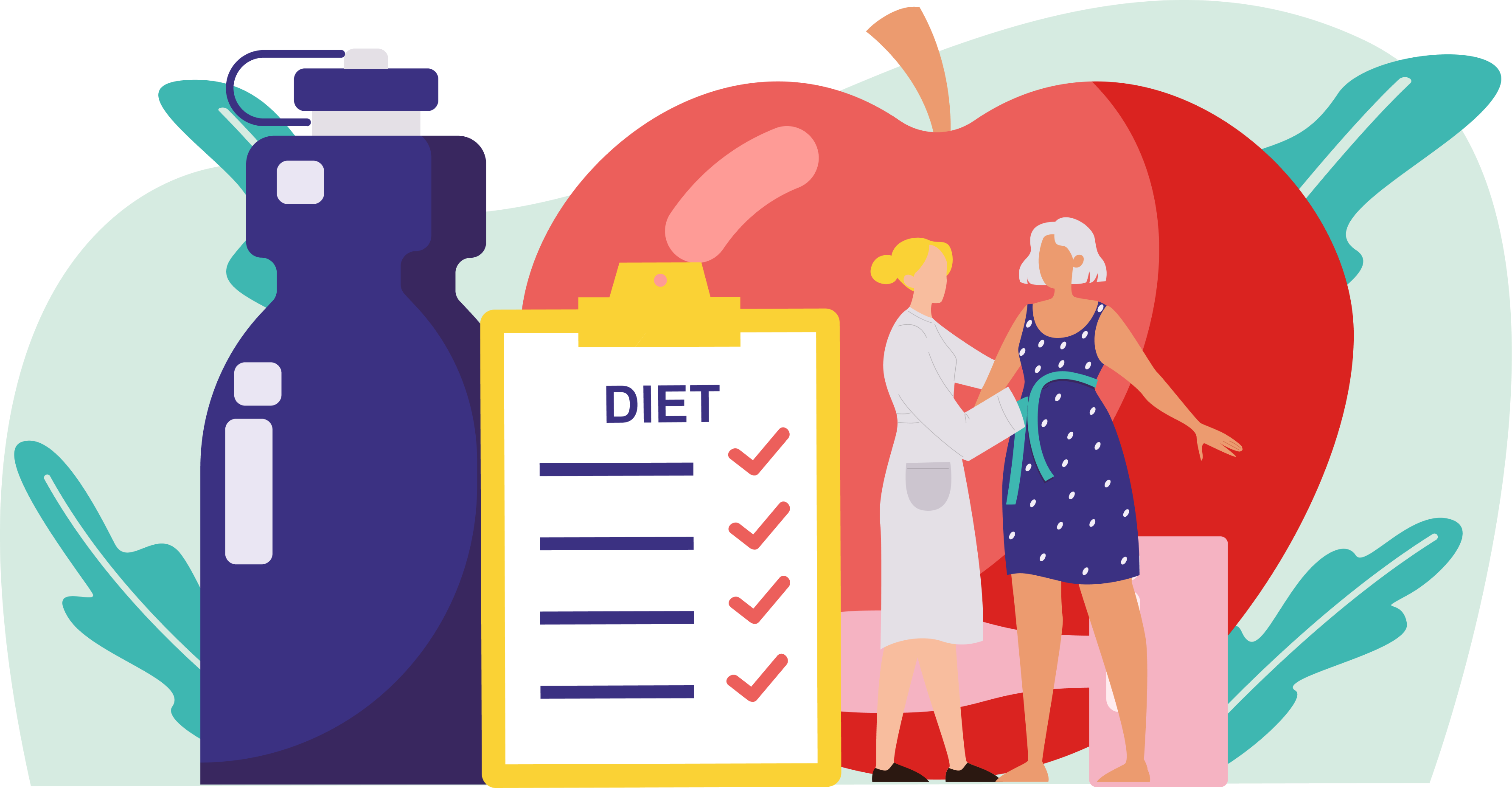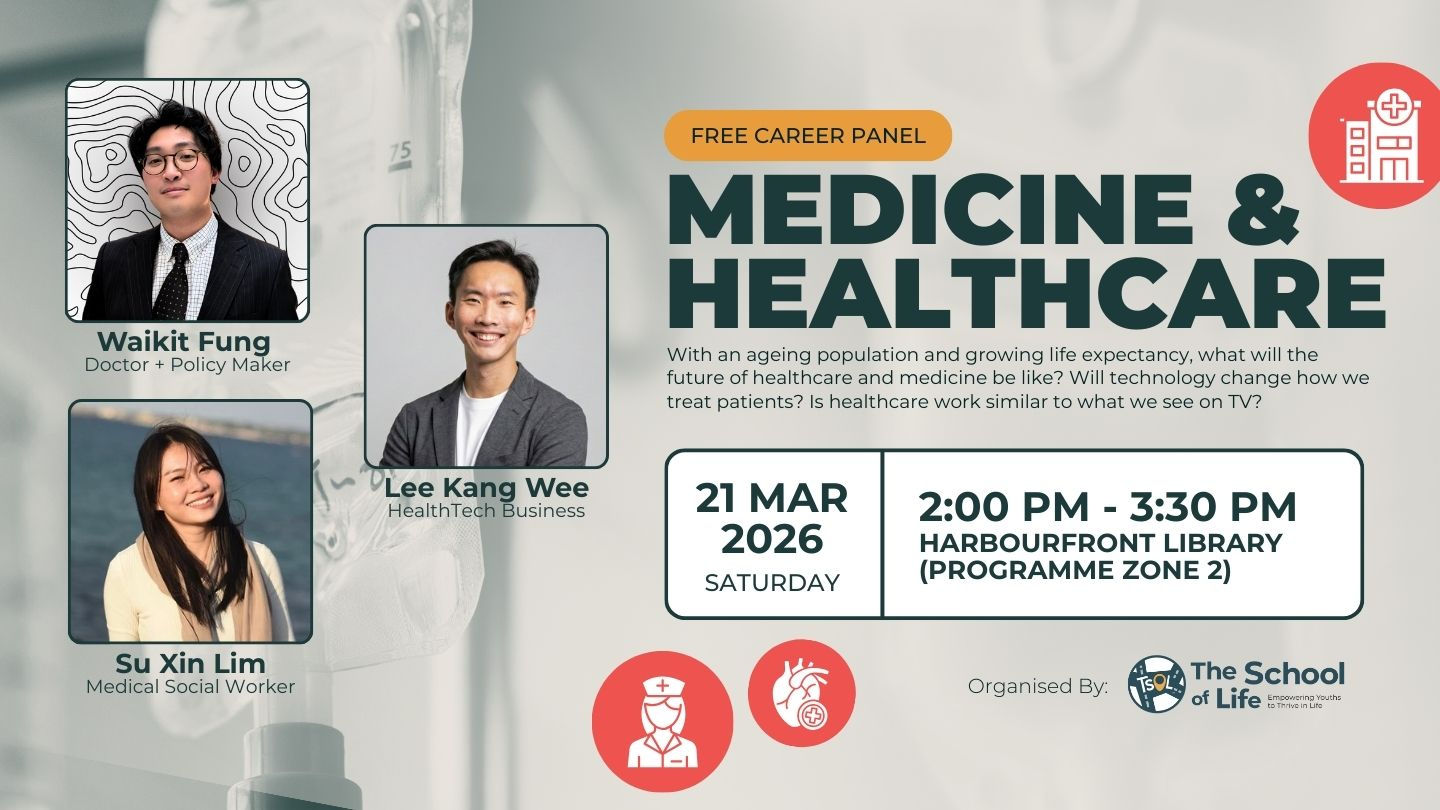
Dietitians are passionate about food, nutrition, and health. They implement specific diet strategies to manage patients' chronic conditions such as diabetes.
Dietitian Job Description
- Assess the nutritional well-being of patients and take note of their existing illnesses.
- Conduct talks on diet and nutrition to prevent or manage specific diseases.
- Plan diets for patients (e.g. adding more fruit in the patient's diet if the patient needs more vitamins etc.)
- Help patients align nutrition goals with personal goals.
- Work with Doctors and other Healthcare professionals to manage and check patients' health status.
Note
People often have the misconception that Dietitians are a kind of "food police". They don't work to make people skinnier, but they help make patients healthier.
What you should know about Dietitian jobs in Singapore
Nature of work
You'll assess clients' nutritional needs, develop and implement nutrition programs, and evaluate and report on the outcomes.Key advice
Ensure that you keep up with any certifications or licences to assure clients of your competence and dedication to the field.-
Entry RequirementsEntry Requirements
- Take up an internship and/or shadowing opportunity with a hospital or senior Dietitian. You can email different organisations and non-profits to ask for job shadowing.
- A bachelor's degree in Nutrition and Dietetics is required. In Singapore, only Singapore Institute of Technology (SIT) offers a bachelor of Science with Honours in Dietetics and Nutrition.
-
Possible PathwayPossible Pathway

Skills you need to pursue a Dietitian career in Singapore
Human Physiology
In-depth understanding of human Physiology to assess nutritional needs and the impact of diet on the body.Biochemistry
Knowledge of Biochemistry to understand how nutrients are metabolised and their role in health and disease.Dietetics Software and Tools
Skilled in specialised software or tools for planning, nutrient analysis, and record management.Communication
Excellent communication skills for effectively conveying dietary advice and motivating clients.Empathy
A strong sense of empathy to understand and address clients' challenges and concerns related to diet and nutrition.Decision Making
Ability to make informed decisions based on clinical assessments, dietary needs and individual client goals.
“We examine patients, assess their nutritional needs and recommend an appropriate feeding plan. ”
Charles Lew, Principal Dietitian
Related Job Roles
Explore Other Programmes
Browse AllYou have bookmarked your first item!
Find it in My Discoveries with insights on your interests!











